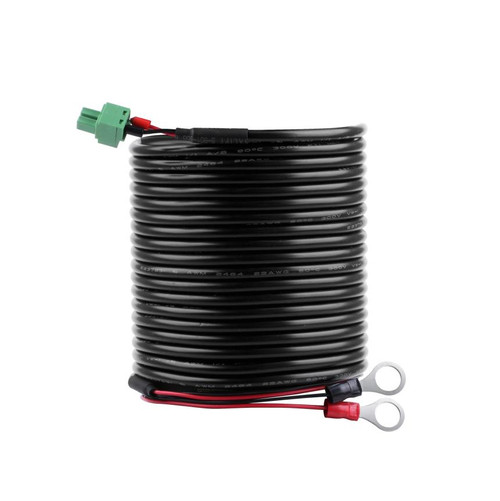Table of Contents
Chargers with voltage sensing
Higher charge/discharge current can distort the voltage the charging source “sees” at that source's BATT terminals. For example, if the battery battery bank is actually 13.0v and the charger is putting out a lot of current the battery voltage might appear (to the charger) to be 13.4v. From the bank's point of view it's voltage sag. From the controller's point of view it's voltage rise. 1) This effect is aggravated by undersized wiring or poor connections.
To limit this effect some chargers use a separate voltage sensing2) circuit to get a more accurate reading of the bank voltage. The sensing circuit is not affected by voltage distortion because the sensing current does not carry significant current.
Do not assume your charger has a separate voltage sensing circuit; read the documentation carefully. By definiteion, some kind of remote sensing will be required (wire, dongle, etc)
solar
The Victron line uses the Smart Battery Monitor, Smart Shunt, Smart Battery Sense to send voltage info via bluetooth to SmartSolar controllers (built-in BT) and BlueSolar controllers (using an add-on BT dongle).
Most other controllers with voltage sensing use dedicated sense wires, which are often just plain wire. Some controllers have special connectors which might require a proprietary sense wire (see below).
 The Renogy line uses a sense wire like this to send remote voltage info to these controllers:3)
The Renogy line uses a sense wire like this to send remote voltage info to these controllers:3)
DC-DC
combo solar and DC-DC
Renogy

